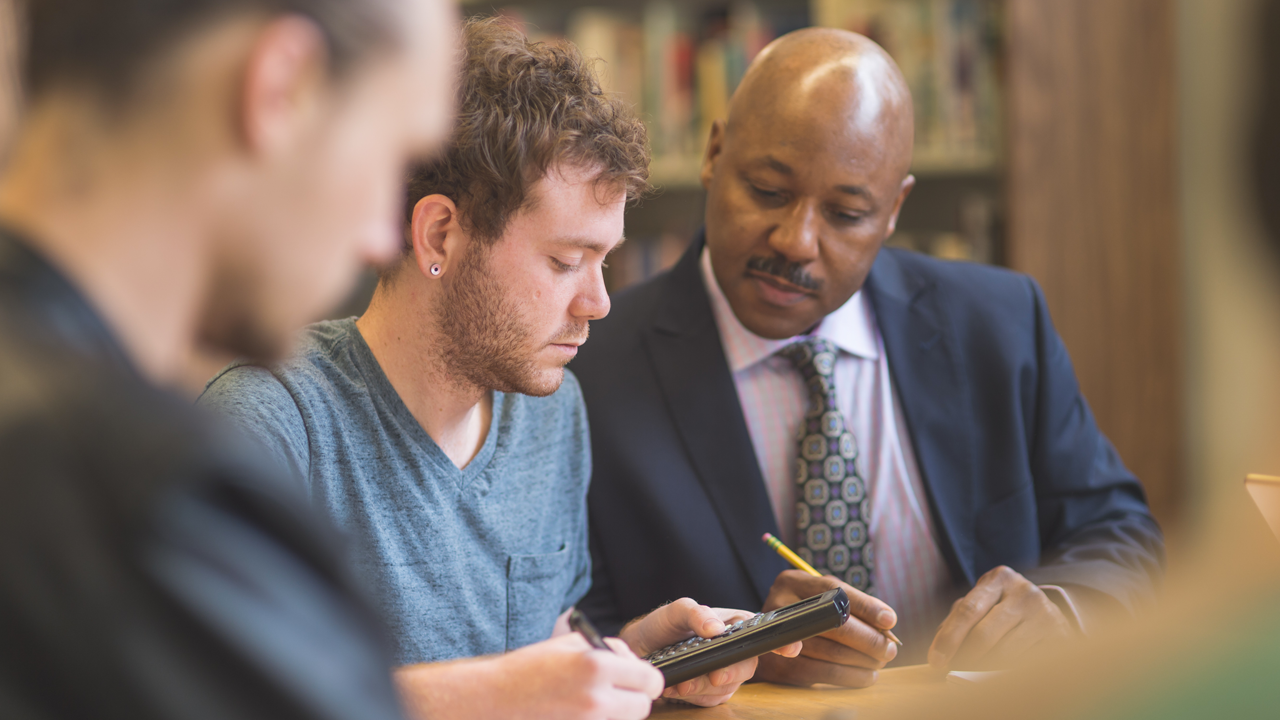
Many of the most pressing issues in society, from equitable access to health care to sustainable land use, are also the most complex. University researchers are increasingly coming together across disciplines to combine their areas of expertise and take a more comprehensive approach to solving these issues.
The University of Minnesota’s Grand Challenges Research Initiative aims to enhance this type of interdisciplinary research by jumpstarting new collaborations, engaging external partners, and helping faculty compete for resources to sustain larger research efforts. Grand Challenges research, which complements other interdisciplinary work already underway at the U, is part of Driving Tomorrow, the Twin Cities strategic plan led by the Office of the Executive Vice President and Provost to accelerate advancement of excellence in research, teaching, and outreach.
“Grand Challenges research was born out of a strategic vision to build a more integrative and deeply engaged campus that collaboratively addresses critical societal issues,” said Raymond Duvall, Ph.D., special assistant to the provost for Grand Challenges research and political science professor in the College of Liberal Arts. “Essentially, we seek to foster transformation at the University to spur the collaborations that will lead to breakthrough research.”
During Phase 1 of the initiative in September 2016, the U invested $3.6 million into five focus areas: assuring clean water and sustainable ecosystems, fostering just and equitable communities, enhancing individual and community capacity for a changing world, feeding the world sustainably, and advancing health through tailored solutions. All told, this first round of funding brought together 29 research teams, composed of nearly 200 researchers from across 17 University colleges and schools.
This past September, Phase 2 of Grand Challenges funding, supported in part by the U’s Institute on the Environment and the University Metropolitan Consortium, invested nearly $3 million for research into two of the original areas: assuring clean water and sustainable ecosystems, and fostering just and equitable communities. Six interdisciplinary team projects, including more than 120 faculty and external partners, received up to $720,000 to spur fewer but more in-depth research projects that can accomplish more than projects at lower levels of funding. The other three Grand Challenges—enhancing individual and community capacity for a changing world, feeding the world sustainably, and advancing health through tailored solutions—will be the focus of future rounds of funding.
Phase 2 also formed two Grand Challenges Research Scholar Collaboratives, which are teams of six faculty members who work together on a scholarly project (such as a proposal, performance piece, or publication) and also develop a white paper that envisions new directions and processes for interdisciplinary work at the U.
The Science of Collaboration Itself
What’s unique about the Grand Challenges Research Initiative is that it in itself is a form of research. As researchers pursue the central goal of addressing large societal challenges, the Grand Challenges Research Strategies Team, which oversees the effort, is paying close attention to how the collaborations fare. That’s because the team hopes to learn how the U can most effectively spur successful collaboration across disciplines.
“So many people at the U have similar interests, but they don’t know each other,” said Carla Carlson, Ph.D., special consultant in the provost’s office and Grand Challenges Research Initiative staff. “What we need to do is take a look and identify the most productive mechanisms that benefit faculty and their interests in cross-disciplinary collaborations.”
The effort is well underway. The Grand Challenges have funded projects using four different methods so far, from funding many teams with smaller, exploratory grants to providing larger awards for a smaller number of projects, and the Research Strategies Team is asking faculty members to describe their experience working across disciplines under each of the methods. The feedback on how well their team collaborated and what barriers they faced can help inform future efforts to foster interdisciplinary collaboration.
Christopher Uggen, Ph.D., Regents Professor and Martindale Chair of Sociology and Law, said he felt fortunate to be part of the diverse and accomplished team of faculty, graduate, and undergraduate students who were eager to roll up their sleeves and get to work finding ways to reduce racial and economic inequality in Minnesota and beyond. Their project, “Assessing Interventions for Justice & Equity,” brings together six disciplines, ranging from civil rights to applied economics, to evaluate the effectiveness of programs that aim to close opportunity gaps.
“With the University’s great initiative and strong support, we are engaging absolutely fundamental issues of inequality, justice, and equity,” Uggen said. “I won't lie; the research is challenging at times. Our goals are ambitious—more ambitious than any of our individual projects—and there is always a danger of "overreaching" and missing the mark. But research in service of justice and equity is richly rewarding and personally meaningful to all the students and faculty on the team.”
Moving forward, Carlson said the Research Strategies Team is organizing a research expo, planned for April 18, that brings together faculty, students, staff members, and external partners to talk about the rewards and pitfalls of interdisciplinary research. Part of this event will address the basis for future rounds of Grand Challenges Research funding and the potential to leverage funds to continue advancing internally funded work.
“We really want to try to keep the teams moving and excited enough to pursue external funding and create new opportunities through the work they’re doing,” Carlson said.